7. Head (1968)

This plotless cinematic experience in pop art hubris emerged just as the Monkees TV show was cancelled, courtesy of director Bob Rafelson (Five Easy Pieces), who co-wrote this psychedelic speculation along with Jack Nicholson (who also appears in the film).
A series of spirited, strange, and 100% WTF am I watching vivacity, Head finds TV rock group The Monkees (Micky Dolenz, Davy Jones, Michael Nesmith and Peter Tork) on a series of trippy, blissed-out 1960s Hollywood hijinks with the highlight perhaps being seeing the boys in the bands as dandruff on a giant cranium in one of many hypnagogic sequences.
Other high points include cameos from Toni Basil, Annette Funicello, Dennis Hopper, Frank Zappa, and more, with some surprisingly satisfying music from The Monkees––including all of their best work––and dank nuggets from the likes of Carole King and Harry Nilsson, too. Head is a strange, delirious, and ridiculous trip.
6. The Young Girls of Rochefort (1967)
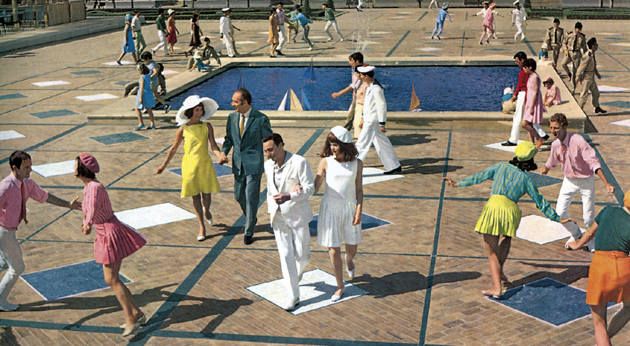
The final film in Jacques Demy’s informal “romantic trilogy”––a trio of musicals that share some of the same actors, characters and overall visual aesthetic––The Young Girls of Rochefort follows Lola (1961) and The Umbrellas of Cherbourg (1964).
The zigzagging plot is comprised of poetic melodrama as various young lovers search for their muses in the titular seaside town of Rochefort. The game cast includes Catherine Deneuve and her sister Françoise Dorléac, playfully portraying twin sisters Delphine and Solange, respectfully.
Maintaining his signature fairy tale whimsy and spirited musical bursts, Demy’s delirious state of mind afflicts his love-smitten cast (which also includes Grover Dale, Michel Piccoli, and Gene Kelly), and the Michel Legrand score, a jazzy, poppy, with occasional yé-yé girls glamor, is an absolute thrill.
Romance collides with reality and fantasy in showstopping lovey-dovey numbers like “Love Me Tonight”, “Hallelujah I’m a Bum”, and “You Must Believe in Spring”. Throughout The Young Girls of Rochefort the heart swoons, the music swells and everything is touched with grace in what may well be Demy’s finest operetta of them all. Don’t miss it.
5. Cry-Baby (1990)
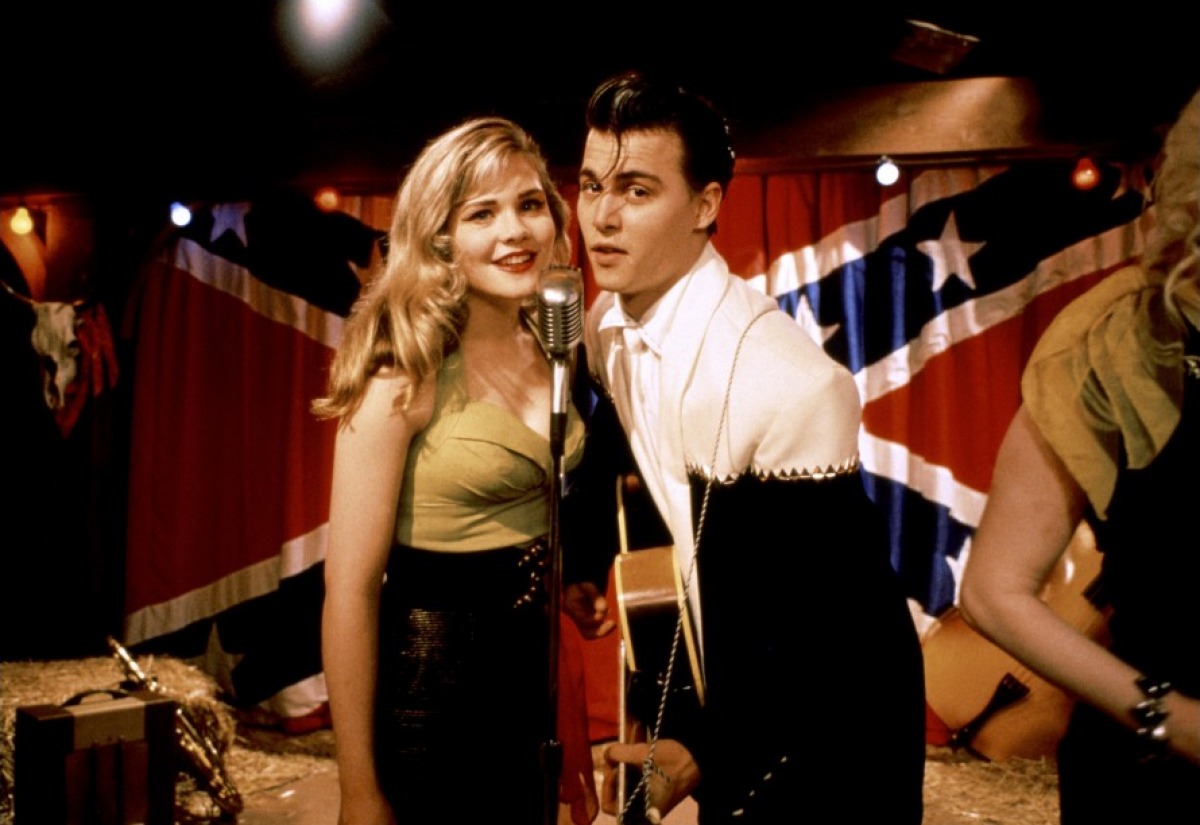
Transgressive cult hero John Waters offers up an affectionate ode to teen delinquents in 1954 Baltimore, Maryland, in his campy musical celebration from 1990, Cry-Baby.
Johnny Depp leads an impressive and mischievous cast that also includes Willem Dafoe, Ricki Lake, Traci Lords, Iggy Pop, Mink Stole, Kim Webb, and many more.
Wade “Cry-Baby” Walker (Depp) leads a rabble of delinquents, who prefer the nomenclature “drapes”, who just so happens to have the hots for “square” Allison Vernon-Williams (Amy Locane), but is uptight Baltimore ready for their forbidden and decidedly raunchy brand of love? Together Wade, Allison and their misfit friends will affect the rest of the town, and maybe, just maybe, change everyone’s minds for the better (after smashing every taboo in the proverbial book while they’re at it).
While Cry-Baby has a cache of pleasures guilty, goofy, and melodic––”King Cry-Baby” may well be too criminally catchy for it’s own good––the cult following that the film eventually acquired is bolstered by the fact that Cry-Baby became a multi-Tony winning Broadway musical in the 2000s (similar to another John Waters classic, Hairspray [1988], also an offbeat must-see musical).
4. Nashville (1975)
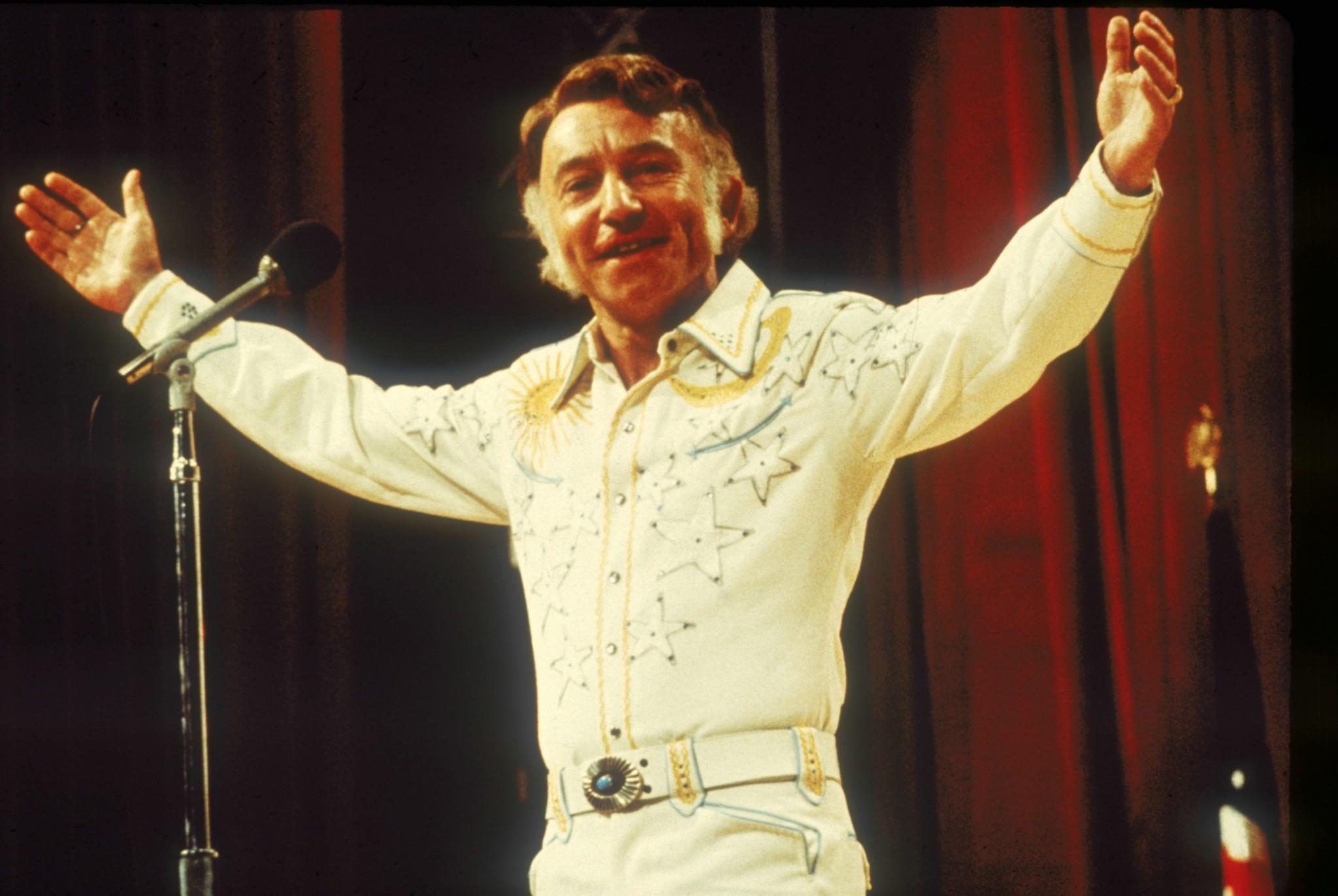
Perhaps the most ambitious revisionist genre film in Robert Altman’s considerable career, Nashville is a dystopian backstage musical that also perfectly captures the paranoia and pageantry of 1970s America. The satire smarts and the music soars in this snapshot of country and gospel musicians in Nashville, Tennessee, during a bicentennial celebration that’s doomed to end in tragedy.
A musical mosaic, Nashville is emblematic of Altman’s multi-protagonist fever dream films as no less than 24 characters merge with an hour of musical numbers, and multiple overlapping storylines. The cast, a veritable who’s who of Altman’s repertoire, includes Karen Black, Ronee Blakley, Keith Carradine, Shelley Duvall, Henry Gibson, Scott Glenn, Jeff Goldblum, Michael Murphy, Lily Tomlin, Gwen Welles, and scores more.
Carradine’s “I’m Easy” won the Oscar for Best Original Song, but the entire OST is one hit after another, in the film that Pauline Kael gushed is “easily the funniest epic vision of America ever to reach the screen”. A classic with a chilling, unforgettable finish.
3. This is Spinal Tap (1984)
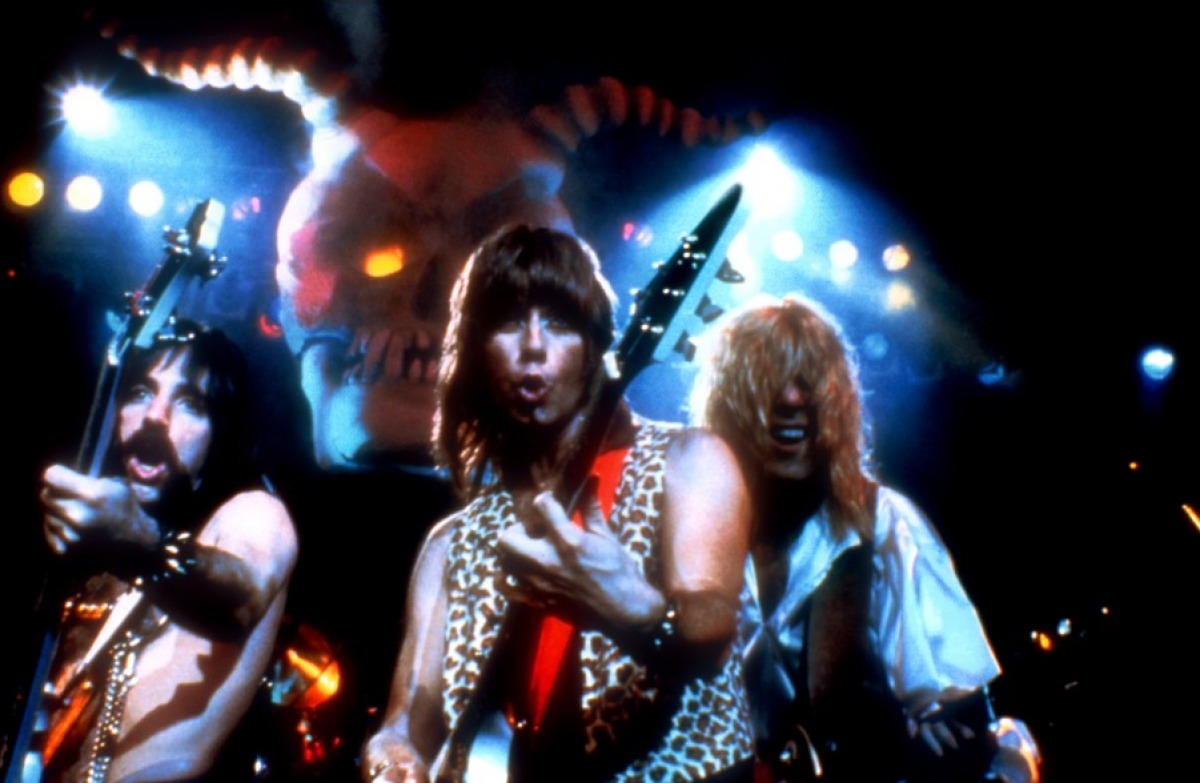
Not only is Rob Reiner’s mockumentary on “Britain’s loudest band” a comedy classic, This is Spinal Tap is also one honey of a musical, too. Flailing filmmaker Marty Di Bergi (Reiner) decides to follow the nearly forgotten UK heavy metal band Spinal Tap on their comeback tour of America after a lengthy lull. Will this unholy trinity of aging rockers––David St. Hubbins (Michael McKean), Derek Smalls (Harry Shearer) and Nigel Tufnel (Christopher Guest)––be able to restore their former glory?
Hits like “Big Bottom”, “Listen to the Flower People”, and “Stonehenge” may say otherwise, but watching the band implode (and in the case of an ill-fated drummer, explode) on stage, backstage, in the hotel, and on the tour bus, is all part of the fractured fun.
The improvisational master class lead by Tap truly astounds, as does brilliant comic turns from the likes of Bruno Kirby, Paul Shaffer, Tony Hendra, Fran Drescher, and June Chadwick amongst others (indeed part of the great fun in viewing Spinal Tap is keeping track of all the cameos). The music is as funny as it is furious, and the quotable quips and endless jags are unconquerable.
2. Duck Soup (1933)
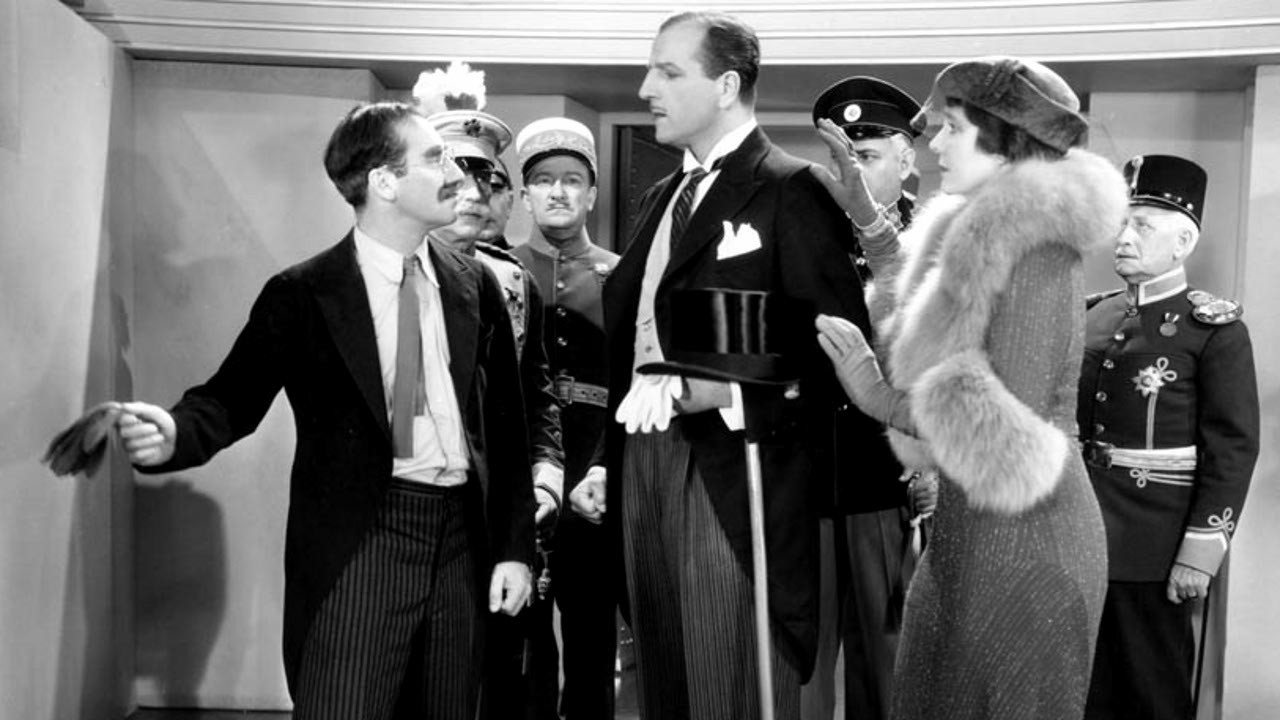
In truth, every Marx Brothers film breaks down into a musical at some point, but few of their finest works have the legacy and harmony of what these singing, ribbing siblings bring down upon the mythical country of Freedonia on the verge of a lilting revolution.
Often considered by film scholars and fans to be the Marx Brothers’ finest film, Duck Soup earns its stripes in part, of course, to the manic brothers, to their great “straight woman” Margaret Dumont, but also to the original music from Bert Kalmar and Harry Ruby. And not to mention the re-working of many tried and true traditional numbers––as when the spiritual number “All God’s Chillun Got Wings” is miraculously re-worked with a cynical sting as “All God’s Chillun Got Guns”.
In the unstable country of Freedonia, the country’s primary benefactress is one Mrs. Teasdale (Dumont), ready to donate millions to the country’s new and unreliable president, the reformist Rufus T. Firefly (Groucho Marx). Firefly’s inaugural singalong “Just Wait ‘Til I Get Through With It” parades his intentions to abuse his power, and his most trusted spies, Chicolini (Chico Marx) and Pinky (Harpo Marx), will of course do their part to cause trouble (and drive at least one peanut vendor mad in the process).
In the words of Freedonia’s flailing president, “I got a good mind to join a club and beat you over the head with it.” Duck Soup is anything but subtle, and singing, stinging, and constant, hilarious string of insults aside, it’s also a great introduction for anyone who’s yet to be enamored with the Marx Brothers. Essential cinema.
1. Phantom of the Paradise (1974)
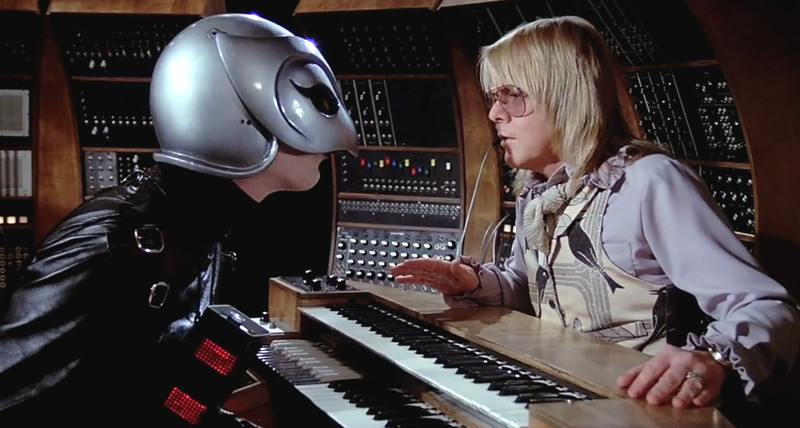
“Brian De Palma has an original comic temperament; he’s drawn to rabid visual exaggeration and to sophisticated slapstick comedy,” wrote Pauline Kael, adding “[Phantom of the Paradise] is a one-of-a-kind entertainment, with a kinetic, breakneck wit.”
In 1974 Brian De Palma made the ultimate midnight movie, a campy, way over-the-top horror musical that beat the Rocky Horror Picture Show to the punch by a solid year and a half. As a playful piss take on popular music, Phantom of the Paradise nails a lot of the tropes of the era, sending up the Beach Boys, Glam Rock, and a Phil Spector-like impresario named Swan, amongst them.
Paul Williams is wonderful in the role of Swan, and his superb soundtrack is still gobsmackingly brilliant some forty years on. William Finley in the titular role as the cursed Phantom is also a terrible treat, and the fervent cult that has embraced the film have elevated both Finley and Williams to the stature of icons.
The much ballyhooed New Hollywood of the 1970s sired many enterprising cinematic curiosities but few as exhilarating, outlandish and impressively stylish as Phantom of the Paradise. For all its crackbrained exuberance and frequently hallucinatory tenor, this musical version of Faust is a feast for the senses; silly, exaggerated, and overblown, this is a film that, by midnight movie standards and beyond, is some kind of masterpiece.
Honorable Mention:
Horse Feathers (directed by Norman McLeod, 1932), Hellzapoppin’ (directed by H.C. Potter, 1941), The Adventures of Priscilla, Queen of the Desert (directed by Stephen Elliott, 1994), Everyone Says I Love You (directed by Woody Allen, 1996), Dancer in the Dark (directed by Lars von Trier, 2000), Hedwig and the Angry Inch (directed by John Cameron Mitchell, 2001), Sweeney Todd: The Demon Barber of Fleet Street (directed by Tim Burton, 2007), Dr. Horrible’s Sing-Along Blog (directed by Joss Whedon, 2008), Trapped in the Closet (directed by R. Kelly and Jim Swaffield, 2005 to 2012), God Help the Girl (directed by Stuart Murdoch, 2014)
Author Bio: Shane Scott-Travis is a film critic, screenwriter, comic book author/illustrator and cineaste. Currently residing in Vancouver, Canada, Shane can often be found at the cinema, the dog park, or off in a corner someplace, paraphrasing Groucho Marx. Follow Shane on Twitter @ShaneScottravis.